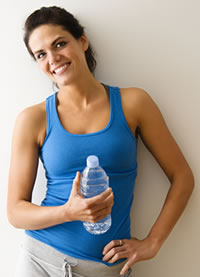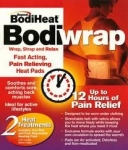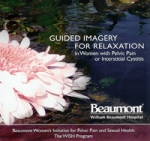Self-Help & Natural Methods for IC/BPS
Most patients quickly learn that what they do each day has the potential of irritating or soothing their bladder, pelvic floor muscles and/or pelvic pain. These self-help strategies are the foundation of care. The most successful patients are those who don’t just depend upon a medication to help their symptoms improve; they are willing to use any and all self-help strategies that will protect their bladders (i.e. diet), relax their muscles, reduce their pain and treat any other issues which could be contributing to their overall health. If your diet is junk food based, then you will need to eat better quality foods to avoid irritating your bladder. If stress and anxiety is out of control, then you may need to take a class to improve those skills. Consider this diagnosis an opportunity to make some important changes in your life. You, the IC patient, should also take the time to learn more about it! Several helpful books are available.
1. Adequate water intake
 IC patients often reduce water intake to reduce their trips to the restroom. If you are not drinking water, your urine becomes darker, concentrated and more irritating to our sensitive bladder wall. Thus a normal amount of water throughout the day (i.e. 6 to 8 glasses) is vital. Urine should be a clear, pale yellow. If it’s dark and cloudy, you may not be drinking enough water. If your urine is clear without any yellow tone, you may be drinking too much water. If you have any questions about your water intake, please talk with your doctor.
IC patients often reduce water intake to reduce their trips to the restroom. If you are not drinking water, your urine becomes darker, concentrated and more irritating to our sensitive bladder wall. Thus a normal amount of water throughout the day (i.e. 6 to 8 glasses) is vital. Urine should be a clear, pale yellow. If it’s dark and cloudy, you may not be drinking enough water. If your urine is clear without any yellow tone, you may be drinking too much water. If you have any questions about your water intake, please talk with your doctor.
2. Diet modification
Diet modification is the single most important self-help strategy that patients must try. They must learn to avoid foods that trigger bladder irritation can reduce discomfort quickly. Several research studies have proven that certain foods, particularly those high in acid and/or caffeine, can irritate the bladder and trigger IC and prostatitis symptoms. Learn more here!
3. Heat or Cold Therapy
 The use of heat or cold packs over the bladder or perineum. IC patients often find heating pads very helpful in reducing muscle tension and/or discomfort. Microwavable pads work well for more severe flares. One time use, BodiHeat Pads, work well for driving, working and longer periods of time. Some patients also prefer cool packs especially to reduce a heat or burning sensation on the vulva or perineum.
The use of heat or cold packs over the bladder or perineum. IC patients often find heating pads very helpful in reducing muscle tension and/or discomfort. Microwavable pads work well for more severe flares. One time use, BodiHeat Pads, work well for driving, working and longer periods of time. Some patients also prefer cool packs especially to reduce a heat or burning sensation on the vulva or perineum.
4. OTC Supplements
The AUA encourages the use of OTC supplements which, for many patients who cannot afford traditional treatments, become an essential lifeline. A variety of products are commonly suggested including:
- Calcium glycerophosphate (aka Prelief) to reduce the acid in food.
- Phenazopyridine (Azo Bladder Pain Relief Tablets / Pyridium) for mild pain relief.
- Various nutraceuticals / OTC Supplements (Bladder Rest™, BLADDER BUILDER™, AloePath and Cysto Renew) are suggested for patients who lack health insurance and/or cannot afford traditional medications or treatments listed below.
5. Meditation & Stress Management
Learning to relax and manage stress is a vital self-care strategy because stress is a well known IC trigger. The majority of patients report that their symptoms worsen during periods of high stress. Thus, taking a step back and looking at your overall stress levels as well as taking proactive steps to reduce stress is vital. Meditation is an excellent tool to use!
6. Muscle Relaxation & Guided Imagery
 Muscle tension is also a strong contributor to pelvic pain and bladder discomfort. During periods of high pain, muscles tighten in a “guarding reflex” that can then cause additional discomfort. Learning how to relax the pelvic floor muscles and muscles throughout the body is a key component to every successful pain management program. Luckily, three guided imagery CD’s are now available specifically for use in patients with IC.
Muscle tension is also a strong contributor to pelvic pain and bladder discomfort. During periods of high pain, muscles tighten in a “guarding reflex” that can then cause additional discomfort. Learning how to relax the pelvic floor muscles and muscles throughout the body is a key component to every successful pain management program. Luckily, three guided imagery CD’s are now available specifically for use in patients with IC.
7. Bladder Training
Bladder training, aka timed voiding, is used to help retrain the bladder in patients who struggle with frequency and urgency. Essentially, patients are given a timed voiding schedule that is slowly increased over a long period of time to help improve bladder capacity. Bladder training is not usually recommended for patients struggling with pain because it can exacerbate chronic pain symptoms and neurological dysfunction.
8. Emotional Support
Patients struggling with emotional symptoms, such as anxiety, depression and catastrophizing, are strongly encouraged to seek help from psychological professionals and/or support groups. Research studies have proven that patients who have solid spousal and family support have a far better long-term outcome than those who don’t.
9. Treat Other Sources of Pain
 Clinicians believe that it is very important to treat any other sources of pain that can be contributing to the high, often overwhelming volume of chronic pain that IC patients can experience. Constipation, for example, should be addressed quickly and every diet study has found that products that help maintain bowel function are soothing to IC patients. IBS, endometriosis, vulvodynia should be discussed with the appropriate medical providers.
Clinicians believe that it is very important to treat any other sources of pain that can be contributing to the high, often overwhelming volume of chronic pain that IC patients can experience. Constipation, for example, should be addressed quickly and every diet study has found that products that help maintain bowel function are soothing to IC patients. IBS, endometriosis, vulvodynia should be discussed with the appropriate medical providers.
10. Avoid Known Triggers
Several activities have been associated with increased pain and discomfort. Tight clothing should be avoided, especially tight pants and/or pantyhose. Normally used for strengthen pelvic floor muscles in patients who are incontinent, kegel exercises are NOT recommended for IC patients because they can increase muscle tension and discomfort. Intimacy and sexual intercourse may also need to be reduced or avoided during periods of increased symptoms. Learn more sex and relationships with IC here!
Author: Jill H. Osborne MA
Revised: July 6, 2022 – JHO
